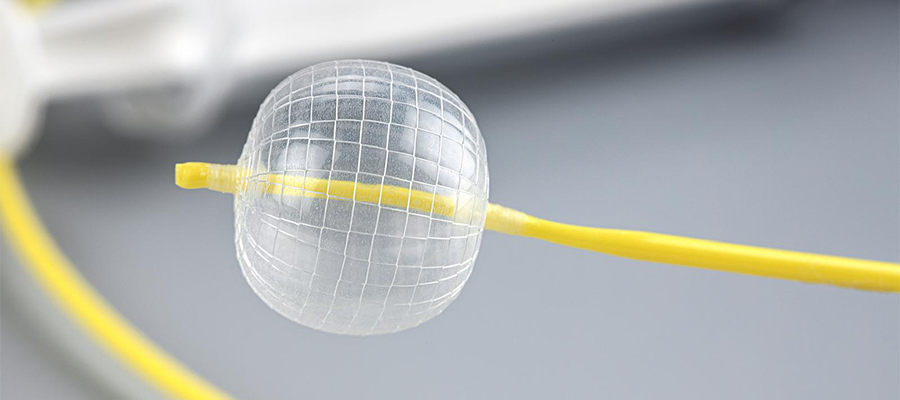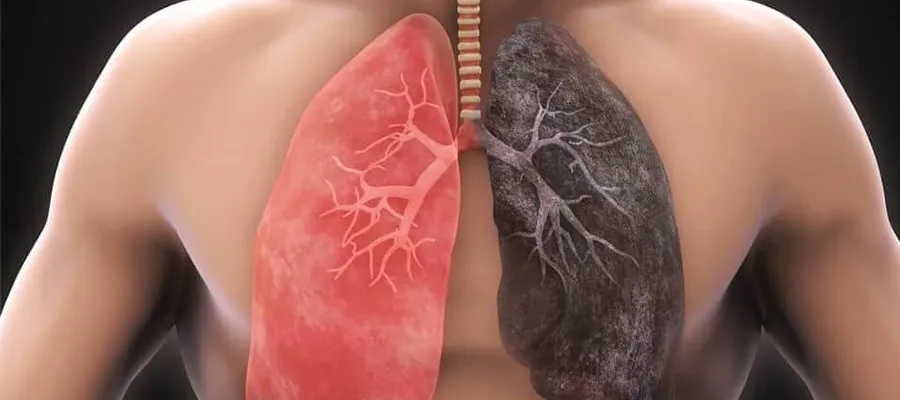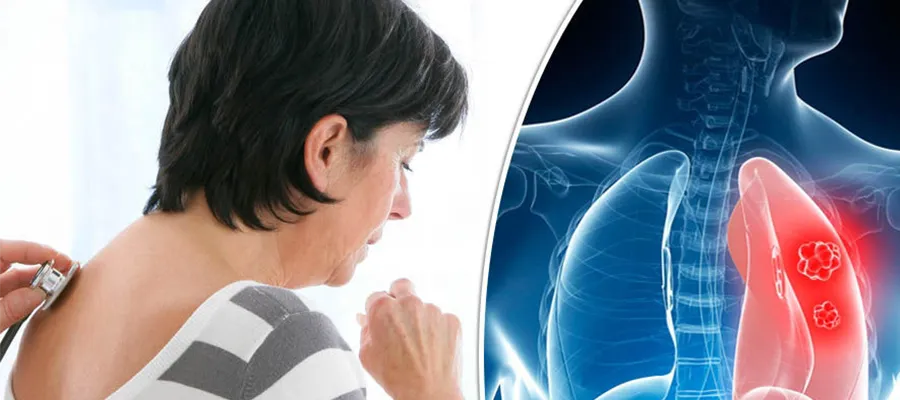Does COPD Destroy the Lungs?
The question of whether COPD can destroy the lungs is a serious one that preoccupies many people who are facing the disease or who observe COPD symptoms in their loved ones. Known as Chronic Obstructive Pulmonary Disease, COPD can cause irreversible damage to lung tissue over time. In seeking an answer to the question of whether COPD can destroy the lungs, it’s crucial to thoroughly examine the nature of the disease, its progression, and potential preventative measures.
COPD is a progressive respiratory disease that occurs primarily in individuals who have smoked for many years or been exposed to air pollution or chemical fumes. This disease is characterized by narrowing of the airways and decreased elasticity in the lungs. As the disease progresses, breathing becomes more difficult, lung function declines, and quality of life is significantly reduced. However, this does not necessarily mean that COPD will completely destroy the lungs. With early diagnosis, appropriate treatment, and lifestyle changes, the disease can be managed.
What Damage Does COPD Cause to the Lungs?
COPD causes both structural and functional damage to the lungs. The most obvious effect is inflammation and narrowing of the airways. This restricts the amount of air that can enter and exit the lungs. Furthermore, the air sacs called alveoli are damaged, preventing proper gas exchange.
Over time, this damage accumulates, causing the lungs to lose their elasticity. This means they cannot expand adequately during breathing. As a result, oxygen intake decreases, and carbon dioxide begins to accumulate in the body. As this condition progresses, the individual becomes forced to breathe with great effort. However, not every COPD patient reaches this level; it is directly related to the stage of the disease, compliance with treatment, and lifestyle.
How Long Does It Take for COPD to Affect the Lungs?
Because COPD is a slowly progressive disease, its effects don’t appear overnight. Damage to the lungs typically occurs over a period of years. This process can be particularly rapid in smokers. Because the disease often progresses insidiously, individuals initially dismiss its symptoms as mild. However, when more than 50% of lung function is lost, serious symptoms such as shortness of breath become apparent.
The time it takes for the lungs to be affected varies depending on factors such as the patient’s smoking history, work environment, genetic makeup, immune system, and lifestyle. The sooner treatment begins after a COPD diagnosis, the more lung damage can be slowed.
At what stages does COPD cause more damage to the lungs?
COPD causes varying degrees of lung damage depending on its stage. In the early stage, symptoms are mild, and most lung capacity is preserved. In the middle stage, shortness of breath becomes more pronounced, and fatigue, especially during exertion, increases. In the advanced stage, patients experience difficulty even with daily tasks, and breathing becomes difficult even at rest. In the final stage, most lung function may have been lost.
The damage to the lungs at these stages can be summarized as follows:
Stage 1 (Mild COPD): There is mild airflow limitation in the lungs. Symptoms are often unnoticeable.
Stage 2 (Moderate COPD): Airways begin to narrow, and the person may have difficulty climbing stairs.
Stage 3 (Severe COPD): Shortness of breath becomes severe, the risk of infection increases.
Stage 4 (Very Severe COPD): More than 70% of lung function has been lost. Continuous oxygen therapy may be required.
Is it possible to stop the progression of COPD?
COPD is a disease that cannot be completely cured, but its progression can be controlled. It is crucial for the patient to be aware of the disease and actively participate in the treatment process. The most effective way to slow its progression is to quit smoking. Smoking is the most significant factor that accelerates COPD, and quitting can prevent further lung damage.
Additionally, regular medication use, breathing exercises, a healthy diet, and infection prevention all positively impact the course of the disease. This can prevent COPD from completely destroying the lungs. In individuals who adhere to treatment, the disease can remain stable for years.
Does COPD Require a Lung Transplant?
In some advanced-stage COPD patients, if lung function deteriorates significantly despite treatment, lung transplantation may be considered. However, this is a very rare procedure and is not suitable for every patient. The decision to undergo transplantation is based on the patient’s general health, other medical conditions, age, and life expectancy.
Lung transplantation is a serious surgical procedure and should be considered a last resort. To avoid reaching this stage, patients must participate in the treatment process early and with discipline.
Does COPD Cause Permanent Lung Damage?
Yes, COPD can cause permanent lung damage. As the disease progresses, the narrowing of the airways becomes permanent, and lung tissue loses its elasticity. Once established, this condition is irreversible. However, it is possible to prevent further damage from progressing. Therefore, early diagnosis is one of the most critical steps in COPD.
With early intervention, a significant portion of lung capacity can be preserved. Permanent damage can be prevented not only through treatment but also by completely changing the patient’s lifestyle habits.
Which Organs Can COPD Affect?
COPD affects not only the lungs but also other organs over time. Impaired lung function disrupts the body’s oxygen balance, preventing organs from receiving adequate oxygen. This can lead to long-term problems in organs such as the heart, brain, and kidneys.
The load on the right ventricle of the heart increases and a condition called cor pulmonale may develop.
Attention deficit and memory problems may occur due to insufficient oxygen in the brain.
Decreased muscle strength, fatigue and weakness are systemic effects of COPD.
Therefore, COPD should be considered not only as a lung disease but also as a systemic problem affecting the entire body.
What Should COPD Patients Do to Protect Their Lungs?
People with COPD need to make significant lifestyle adjustments to maintain lung health. The following suggestions can help patients maintain lung function longer:
Cigarettes and tobacco products should be avoided completely.
Must be protected from air pollution and chemical substances.
Flu and pneumonia vaccinations should be administered regularly.
The medications prescribed by the doctor should be used without interruption.
Attention should be paid to the diet and sufficient fluids should be consumed.
Breathing exercises should be done and regular physical activity habits should be acquired.
Stress management and sleep patterns should not be neglected.
These steps can slow the progression of COPD and prevent further damage to the lungs.
In what cases does the question “Does COPD destroy the lungs?” become a reality?
COPD can severely damage lung function in individuals who do not receive proper treatment or make the necessary lifestyle changes. The disease progresses rapidly, especially in patients who continue to smoke, fail to protect themselves from infections, or neglect their medications. This can lead to the need for continuous oxygen therapy in the late stages of COPD, leading to a dramatic decrease in quality of life.
However, this course of events is not a foregone conclusion. With disciplined treatment and a conscious lifestyle, COPD patients can live active and healthy lives for many years. Therefore, the answer to the question of whether COPD kills the lungs depends entirely on the patient’s lifestyle choices and adherence to treatment.
What are the Treatment and Costs of COPD?
Because COPD treatment is planned individually, costs vary. Medications, oxygen therapy, pulmonary rehabilitation programs, and follow-up examinations determine the financial structure of the treatment process. Furthermore, the equipment of the clinic where the treatment is performed and the experience of the specialist also influence the cost. Proper management of COPD is crucial for addressing the question of whether it can kill your lungs. Contact us today for pricing on whether COPD can kill your lungs.








